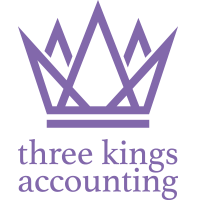A Limited Company Tax Guide: Everything You Need To Know
As a limited company, you are formally incorporated with Companies House and your tax structure changes entirely.
These changes could be confusing if you recently transitioned away from self-employment or another type of work that blended your personal and business interests.
To help you get on your way, we created a short introduction to limited company tax, including the significant taxes you must pay and how to save on your 2020 tax bill.
You Must Pay Corporation Tax
One of the first things all companies must do after incorporation is to register your company for tax. In most cases, you do this at the same time as you register with Companies House, but some businesses may need to complete the processes individually.
The difference between self-employment or a similar unregistered scheme and running a limited company is corporation tax. It is similar to the idea of income tax – for companies.
Corporation tax in the UK is currently 19 per cent, and limited companies must pay it on all profits up to £300,000.
Each year, you pay the tax via your Corporation Tax return, which you must submit within nine months and one day of the “normal due day.” The standard due date is the anniversary of the day you incorporated.
You Must Register For VAT
If your limited company has a turnover of £85,000 during any 12 months, then you must also register for and pay Value Added Tax (VAT).
VAT returns require you to collect the VAT on behalf of HMRC. You then pay the balance minus the VAT you spent during the quarter.
However, there are multiple VAT schemes available. An accountant can help you determine the best VAT scheme for you.
You Are Allowed Tax Deductible Expenses On Your Turnover
Limited companies enjoy a large number of deductions from your taxable turnover.
You can deduct the costs of running your business (including salaries) from your tax bill. Mileage, training, and accommodation also count. However, expenses must fall into the category of being “wholly and exclusively for business purposes.” So, if you use your weekend training trip as a family weekend away, you need to sort your expenses carefully.
Perhaps the most significant relief comes from formal relief programs such as:
- Research & Development
- Disincorporation Relief
- Creative Industry Relief
- Marginal Relief
- The Patent Box
- Loss Relief
Each comes with strict rules that may apply differently to each size or type of limited company or corporation. You can learn more about the latest updates to these programs on the Gov.uk website.
Do You Know Your Tax Liability?
Limited company tax changes with each budget year, but unfortunately, it never becomes less complicated.
As a limited company, you should expect to pay corporation tax and VAT as well as a host of other taxes if you hire employees.
Whether you are a new limited company or you are looking for a way to save, we would be pleased to help you begin to navigate HMRC rules. Get in touch or call us on 01735 840 188.


